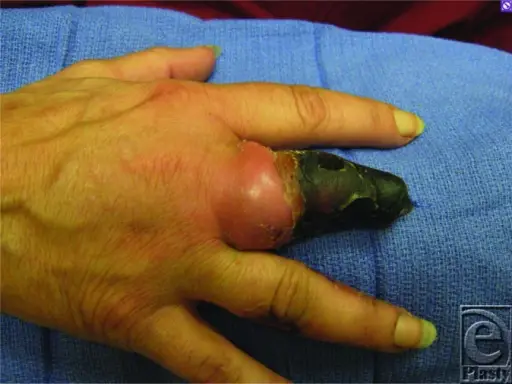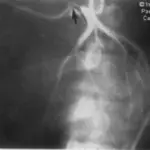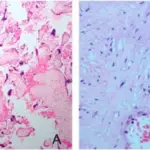Thromboangiitis obliterans aka Buerger disease is an inflammatory vasculopathy, leading to vascular inadequacy.
What is the Pathology of Thromboangiitis Obliterans?
The pathology of thromboangiitis obliterans (Buerger disease) is:
-Etiology: The cause of thromboangiitis obliterans (Buerger disease) is related to tobacco use.
-Genes involved: HLA-A9 and HLA-B5.
-Pathogenesis: The sequence of events that lead to thromboangiitis obliterans (Buerger disease) is as the result of immunologic spectacle leading to vasodysfunction as well as inflammatory thrombi.
-Morphology: The morphology associated with thromboangiitis obliterans (Buerger disease) shows vasculitis of medium-sized and small arteries.
-Histology: The histology associated with thromboangiitis obliterans (Buerger disease) shows polymorphonuclear leukocyte (PMN)-predominant inflammatory cellular.
How does Thromboangiitis Obliterans Present?
Patients with thromboangiitis obliterans (Buerger disease) are typically males that smoke. The symptoms, features, and clinical findings associated with thromboangiitis obliterans (Buerger disease) include distal digit frank gangrene, ischemic rest pain, leg/feet and arms claudication. And feet infection.
How is Thromboangiitis Obliterans Diagnosed?
Thromboangiitis obliterans (Buerger disease) is diagnosed through imaging studies- Arteriography shows nonatherosclerotic, segmental occlusive lesions.
How is Thromboangiitis Obliterans Treated?
Thromboangiitis obliterans (Buerger disease) is treated through cessation of tobacco use, hyperbaric oxygen therapy, pharmacologic therapy- iloprost, oral NSAIDs, narcotic analgesics, and potentially surgical care such as revascularization, and sympathectomy.
What is the Prognosis of Thromboangiitis Obliterans?
The prognosis of thromboangiitis obliterans (Buerger disease) is good, with death from the condition being rare.



